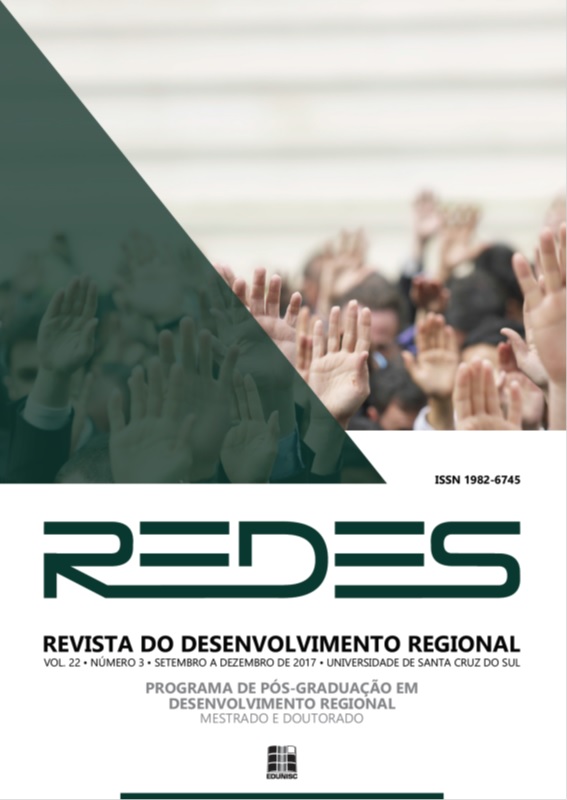Organic Production in the context of Family Farming in Mato Grosso do Sul
DOI:
https://doi.org/10.17058/redes.v22i3.5312Keywords:
Sustainability. Food production. Public politics.Abstract
This work aimed to understand and analyze aspects related to food production under an agro-ecological basis in the context of family farming in the Mato Grosso do Sul state, in order to characterize the profile of the producers and the current scenario of organic production and to identify difficulties in this segment as well as possible means and / or actions to mitigate or solve these difficulties, as perceived by farmers. Thus, the study was conducted in the period of 2012-2013 with 101 organic farmers in 22 municipalities of Mato Grosso do Sul and interviews were conducted with each identified producer. The results showed that the main difficulties mentioned are the lack of financial support for investments and difficulties in pest and disease control. However, farmers indicated the need for partnerships among farmers and claimed qualified, regular technical assistance would solve most of the established difficulties. Hence, it seems that greater effectiveness of public policies for organic agricultural can generate benefits to farmers as well as positive changes in this scenario.Downloads
Download data is not yet available.
Downloads
Published
2017-09-06
Issue
Section
Articles
License
The submission of originals to this journal implies the grant, by the authors, of the printed and digital publication rights. Authors retain copyright and grant the journal right of first publication. Authors may only use the same results in other publications clearly indicating this journal as the medium of the original publication. Because we are an open access journal, we allow free use of the articles in educational and scientific applications provided the source is cited under the Creative Commons (CC-BY) license.How to Cite
Gomes, J. B. P., Padovan, D. S. da S., & Padovan, M. P. (2017). Organic Production in the context of Family Farming in Mato Grosso do Sul. Redes , 22(3), 316-342. https://doi.org/10.17058/redes.v22i3.5312



